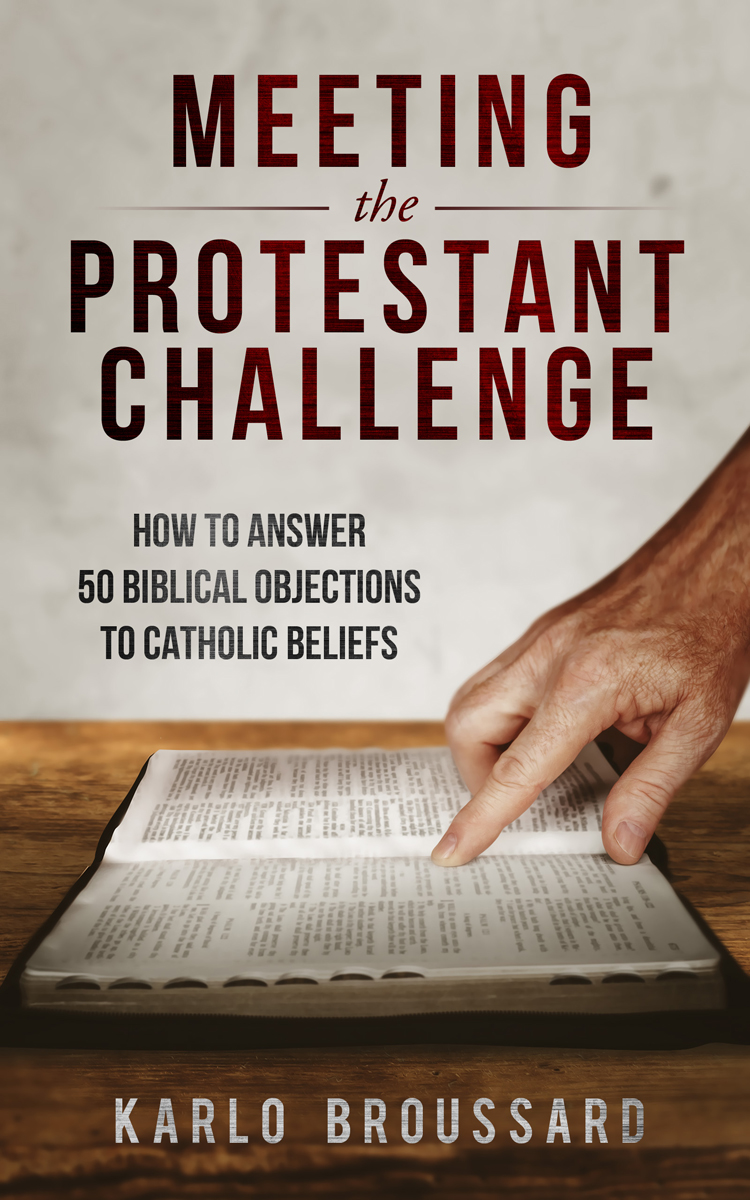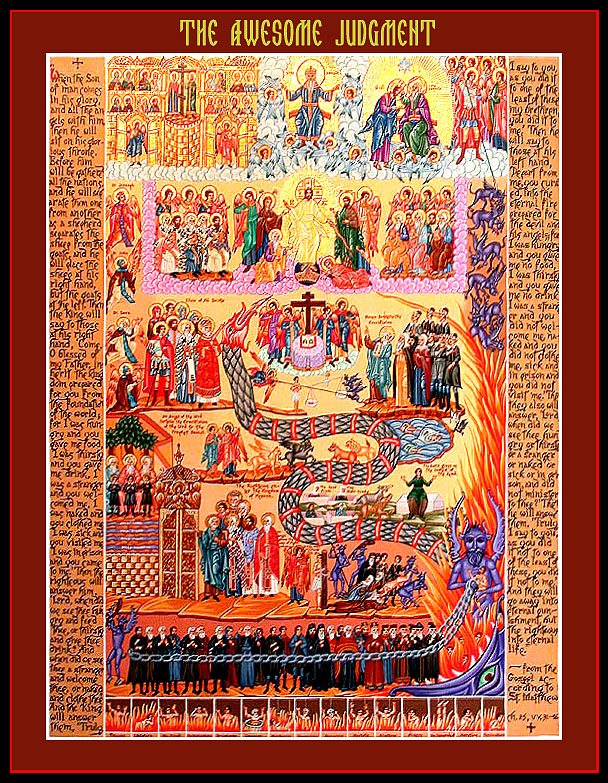
-by Karlo Broussard
“Protestants within the Reformed tradition are known for making a rigorous distinction between justification and sanctification. They argue that when a believer is “saved,” or justified, what makes him stand righteous before God is merely God declaring him to be so, not an interior state of righteousness (holiness). Interior righteousness, they argue, accompanies justification but is not the grounds for being at peace with God. This distinction leads Protestants of this persuasion to claim that a believer’s right standing before God is once and for all, regardless of what’s in his heart or how much he wavers in his pursuit of holiness (sanctification).
The Catholic view, on the other hand, doesn’t draw a hard line. For example, the Council of Trent taught in its Decree on Justification, “Justification is not only the remission of sins, but also the sanctification and renewal of the interior man” (ch. 7). For a Catholic, God reckons a believer to be at peace with him (justified) because he, by a sheer gratuitous gift, has brought about in the believer through faith and charity an interior state of righteousness (sanctification).
So which view is correct? 2 Corinthians 3:1-9 is one passage that shows that the Catholic view is. Let’s take a look at it here.
St. Paul begins with a prominent theme found in the Jewish prophetical tradition: the writing of God’s law on the heart. He writes:
You yourselves are our letter of recommendation, written on your hearts, to be known and read by all men; and you show that you are a letter from Christ delivered by us, written not with ink but with the Spirit of the living God, not on tablets of stone but on tablets of human hearts (vv. 2-3).
Paul then begins to identify this written letter (law) on the heart as characteristic of the New Covenant in contrast to the Old. He writes:
Such is the confidence that we have through Christ toward God . . . who has made us competent to be ministers of a new covenant, not in a written code but in the Spirit, for the written code kills, but the Spirit gives life (vv. 4-6).
This theme of God’s law being written on the human heart in the New Covenant is an allusion to both Jeremiah and Ezekiel. Jeremiah 31:31-34 reads:
Behold, the days are coming, says the Lord, when I will make a new covenant with the house of Israel and the house of Judah, not like the covenant which I made with their fathers when I took them by the hand to bring them out of the land of Egypt. . . . This is the covenant which I will make with the house of Israel after those days, says the Lord: I will put my law within them, and I will write it upon their hearts; and I will be their God, and they shall be my people
Ezekiel, in reference to the time when God establishes his “covenant of peace” (Ezek. 34:25), also called an “everlasting covenant” (Ezek. 37:26), foretells what God will do in those days:
A new heart I will give you, and a new spirit I will put within you; and I will take out of your flesh the heart of stone and give you a heart of flesh. And I will put my spirit within you, and cause you to walk in my statutes and be careful to observe my ordinances (36:26-27).
The revelation that God will give a new heart to his people in the New Covenant with his law written on it indicates there was a problem with Israel’s heart in the Old Covenant: they couldn’t keep the law written on stone. This is why Paul says, “The written code [the Old Law] kills” (2 Cor. 3:6) and goes on to call the Old Law a “dispensation of death” in verse 7 and a “dispensation of condemnation” in verse 9. The ground for condemnation was disobedience. The Old Law gave knowledge of what must be obeyed but didn’t give the power to obey.
For Paul, who’s thinking in the same vein as Jeremiah and Ezekiel, the solution that he identifies as the New Law is proportionate to the problem. The problem for the people of Israel was an interior matter, a matter of the heart; therefore, the solution must be interior and a matter of the heart as well.
So far, everything we’ve said maps on to what a Protestant persuaded by the Reformed tradition would say happens with sanctification. The trick now is to connect the interior transformation that Paul speaks of with justification.
The key is found in verses 7-9. Paul writes:
Now if the dispensation of death, carved in letters on stone, came with such splendor that the Israelites could not look at Moses’ face because of its brightness, fading as this was, will not the dispensation of the Spirit be attended with greater splendor? For if there was splendor in the dispensation of condemnation, the dispensation of righteousness must far exceed it in splendor. Indeed, in this case, what once had splendor has come to have no splendor at all, because of the splendor that surpasses it.
Notice that Paul calls the New Law the “dispensation of righteousness” and contrasts it with the Old Law, which he calls the “dispensation of death” (v.7) and the “dispensation of condemnation” (v.9). The Greek word for “righteousness,” dikaiosunē, is related to the verb dikaioō, which means to justify or declare righteous. These are the words Paul uses when he explicates his doctrine of justification in his letter to the Romans:
- Romans 3:28: “For we hold that a man is justified [Greek, dikaiousthai] by faith apart from works of law.”
- Romans 4:5: “To one who does not work but trusts him who justifies the ungodly, his faith is reckoned as righteousness [Greek, dikaiosunēn].”
This contrast shows that Paul views the result of the Old Law as the opposite of righteousness: unrighteousness. And given what we said above that the result of the Old Law was a heart problem (the problem of Israel that the New Law is meant to rectify), it follows that the people’s unrighteousness under the Old Law was something interior—a matter of the heart. The ground for the legal act of condemnation, therefore, was the Israelites’ interior state of unrighteousness brought about through disobedience.
Now, for Paul, the interior transformation that the new dispensation brings with God’s law written on man’s heart is the proportionate solution to the problem of unrighteousness characteristic of Israel under the Old Law. This is why Paul calls the New Law “a dispensation of righteousness [Greek, dikaiosunēs].”
Since the unrighteousness of Israel under the Old Law was something interior—a matter of the heart, and the righteousness that the New Law written on the heart brings is intended by God to rectify that unrighteousness and make God’s people no longer subject to condemnation, it follows that the righteousness that the New Law brings is an interior righteousness, a matter of the heart—or, as Bible scholar John Kincaid puts it, “cardiac righteousness.”
For Paul, therefore, the ground for no longer being condemned—or, to put it differently, the ground for being justified—is the believer’s “cardiac righteousness,” an interior state of righteousness that God brings about in his soul. And since justification is a transformation of the heart resulting in an interior state of righteousness, we don’t have to draw a hard line between justification and sanctification.”
Love & truth,
Matthew















